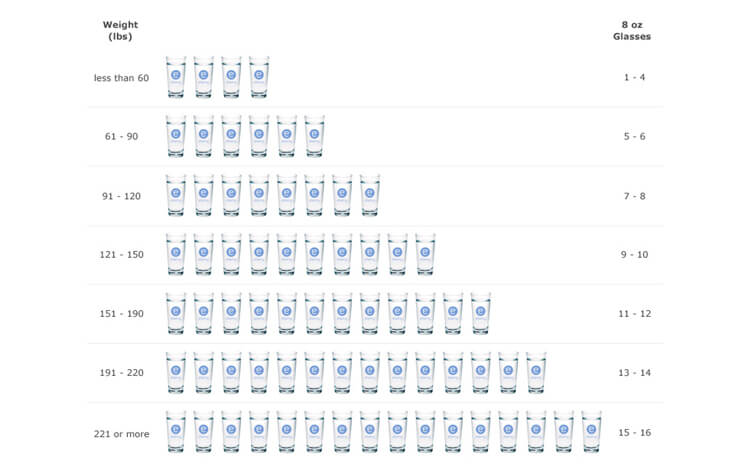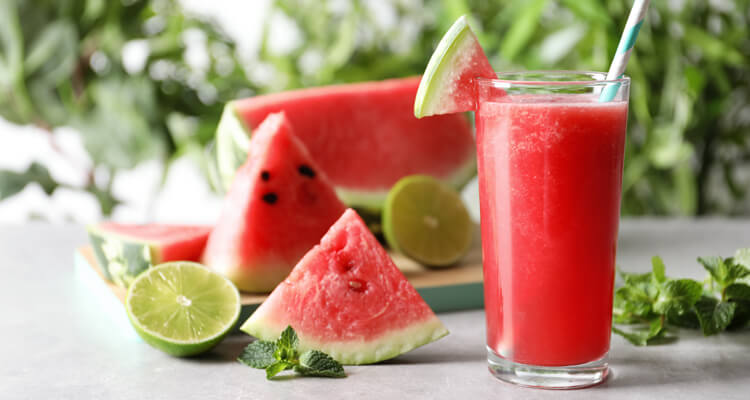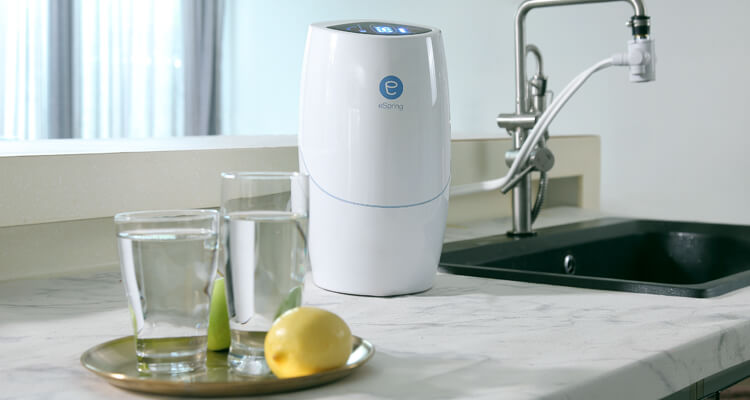Water makes up more than half of your body weight, and without the right amount, your body can’t work its best. Good hydration supports the body’s immune system (our best defense against illness), helps skin health, and keeps our mind sharp and our days productive.
But how much water is enough?
The amount of water required each day depends on your body size, how physically active you are, whether you’re sick or breastfeeding, and even the climate in which you live, because your body uses water to keep you cool or warm.
Every day, the average person should drink about 2 litres of water to replace the fluids normally lost throughout the day. We developed a handy chart to help you remember.

Weight (kg) |
8 oz Glasses |
Less than 27 kg |
1 - 4 |
28 - 40 kg |
5 - 6 |
41 - 54 kg |
7 - 8 |
55 - 68 kg |
9 - 10 |
69 - 86 kg |
11 - 12 |
87 - 100 kg |
13 - 14 |
101 kg or more |
15 - 16 |
If your body’s water level drops, you become dehydrated, which can range from annoying to dangerous. Fatigue, lethargy, headaches, inability to focus, dizziness and lack of strength are all possible signs of dehydration.
Every cell of your body is affected when you don’t get enough water. Your organs, body system and even your bones are made with water. Your body is also constantly losing water, even when all you’re doing is breathing.
Add exercise to the mix and the water loss grows. When you sweat, you lose a lot of electrolytes, including sodium, potassium and chloride, which are essential to your body’s functions. This is why you’ll often get muscle cramps if you haven’t consumed enough water.

If you struggle to drink that much water, there are some other options. You can get a significant amount of water from the food you eat, if you choose wisely.
Most fruits and vegetables have extremely high water content – around 85% or more. The aptly-named watermelon, for example, consists of 92% water.
You can also get water through other beverages. Fruit juices, milk, milk alternatives and teas are good sources. It’s best to avoid too many caffeinated drinks, but they can help somewhat, too. Plain water is usually the best option, however, because it’s free of calories, fat and sugar.

Depending on your schedule and work habits, it may be difficult to remember to drink your daily requirement of water. Getting into the habit of carrying a reusable water bottle with you wherever you go can make a big difference.
You can develop a routine of filling it at certain times of day, like just before you leave the house and right before lunch. That will make it easy to track how much you drink. (There are apps for that too, of course.)
If you don’t like the taste or smell of your tap water, consider investing in a quality water filter, like the eSpring™ Water Treatment System from Amway to remove that barrier. You could also try infusing your water with fruits or vegetables to improve the flavour.